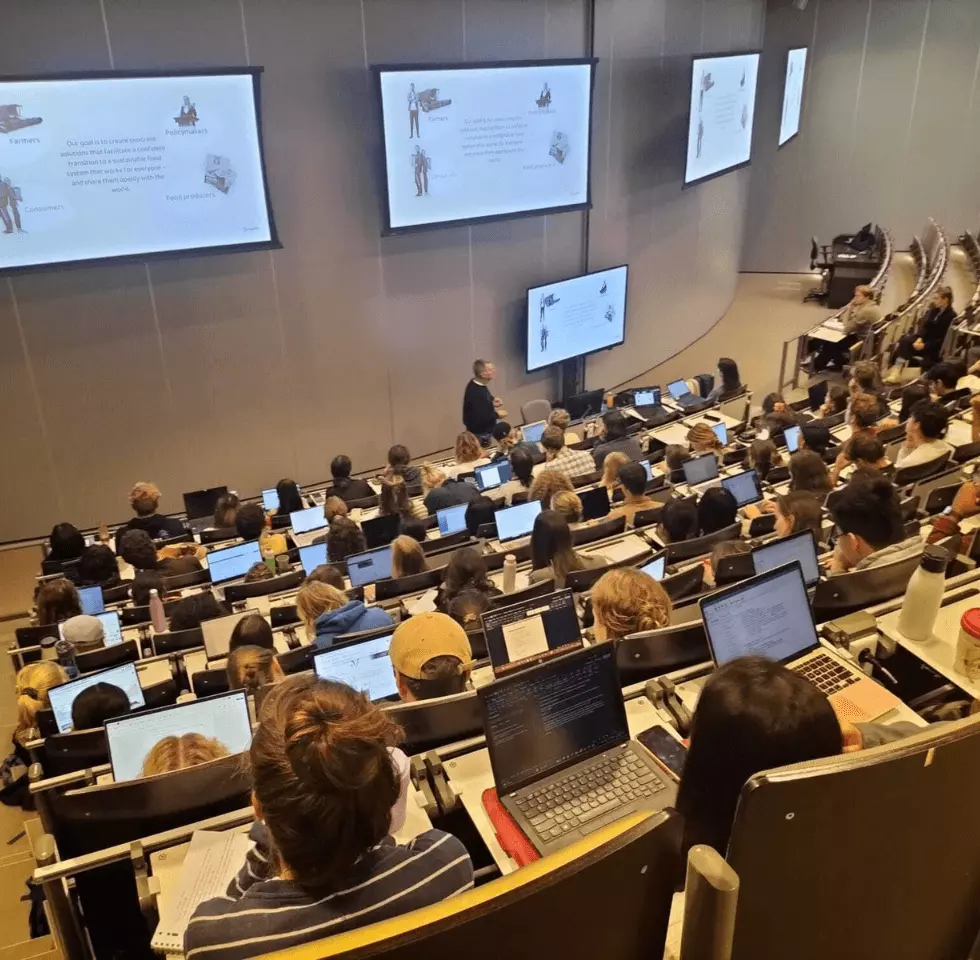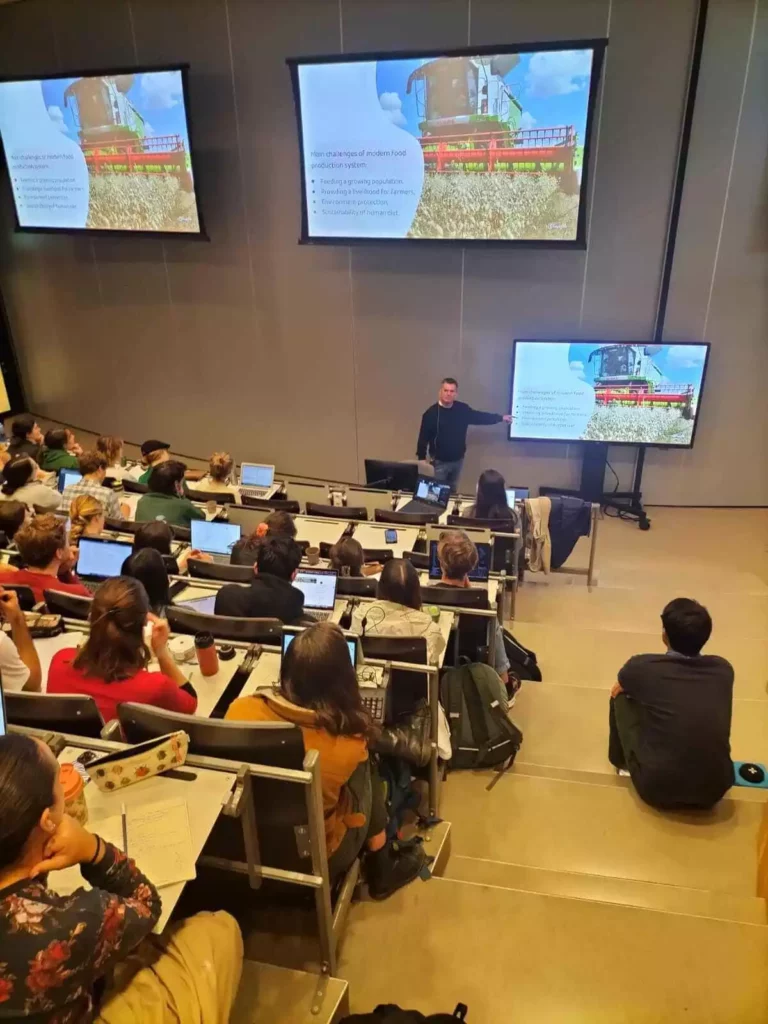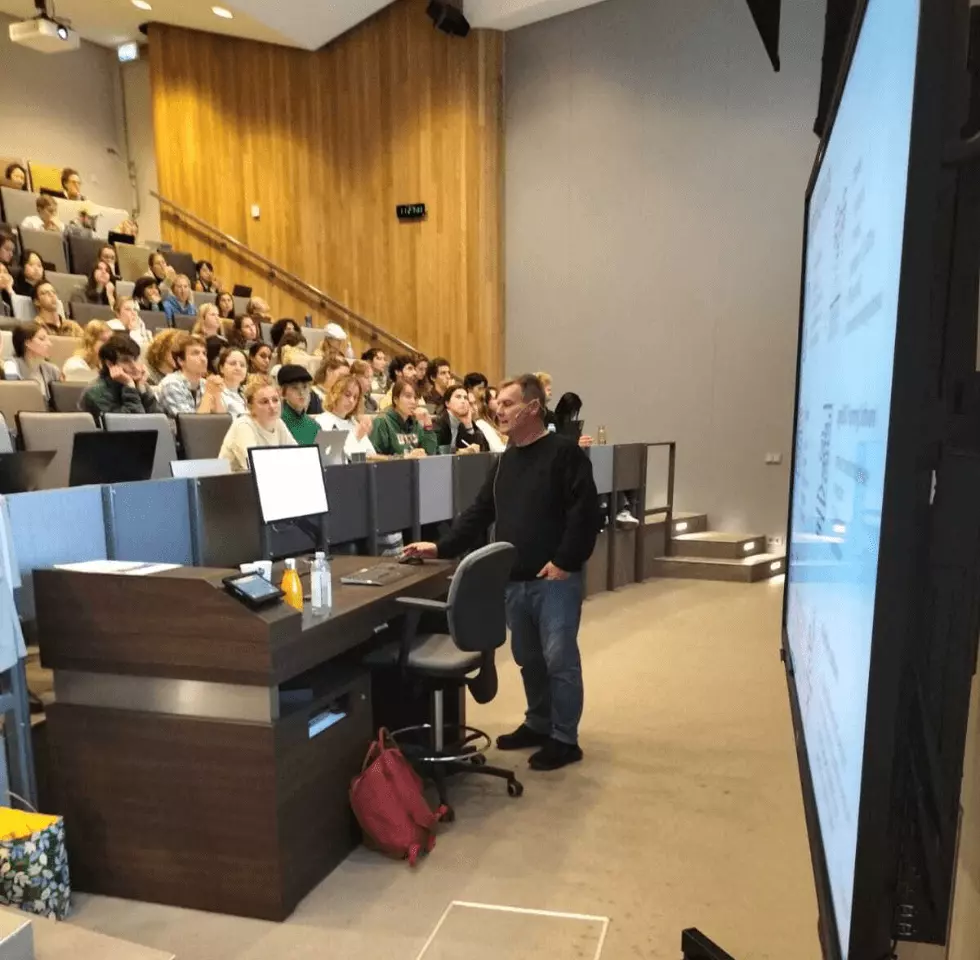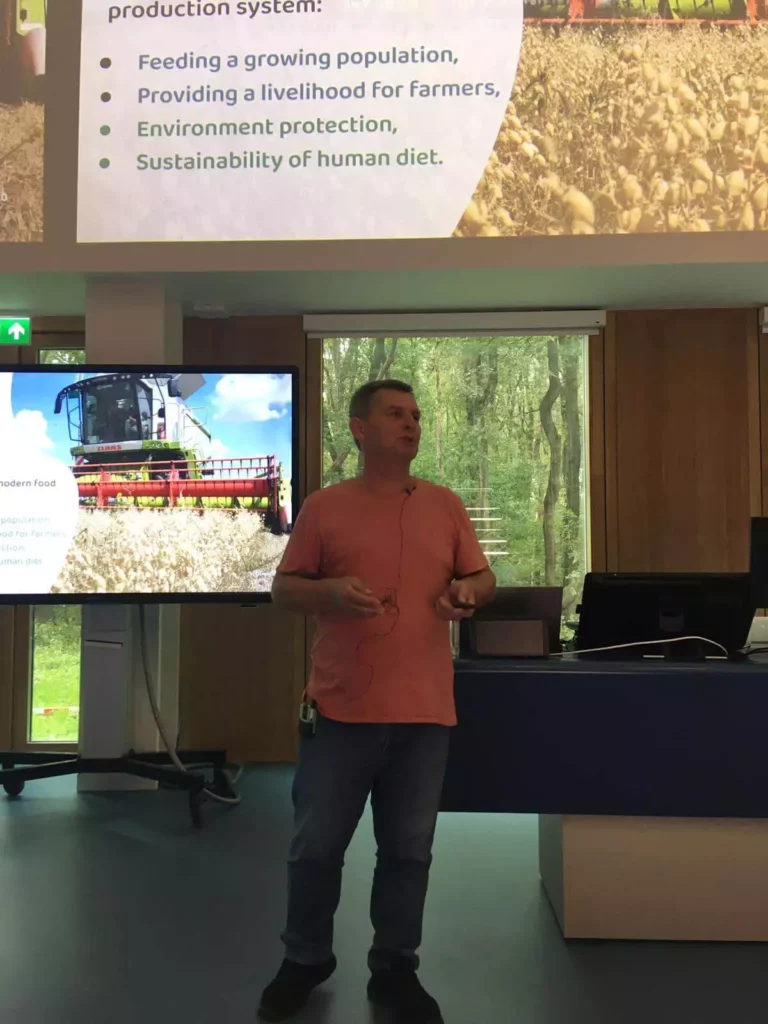How We Tackle Weeds in Organic Chickpeas
June 23, 2025We’re back in the field with our chickpea cultivation series! See how we tackle weeds after emergence using inter-row cultivation.
Read articleLoginEKO was warmly welcomed by Wageningen University and Research in the Netherlands with several lectures and discussions on October 9-10th 2023.

Upon the invitation of Mariana Debernardini, Project Coordinator of the Global Lighthouse Farms Network, one of the members of the LoginEKO Agro R&D team, Đura Karagić had the privilege of presenting LoginEKO as a new Lighthouse Farm to students and professors at Wageningen University and Research (WUR).
Our journey commenced with Đura’s lecture at the request of Dr. Merel Hofmeijer to bachelor’s and master’s students of the Organic Production Systems course. Đura explained the vision of LoginEKO, outlining the challenges we confront and the projects and solutions we are developing. He showcased a selection of video content, shedding light on diverse aspects of our work, including green manure, buffer zones, food development, and innovative farming software. The Aurora building amphitheater held approximately 70 students who were highly engaged and posed a lot of questions.
The topic that sparked the most curiosity was our decision to be livestock-free. Đura presented three key reasons for this choice:
1) mass livestock production is the main source of GHG emissions,
2) increasing the sustainability of the national diet by reducing the use of meat and increasing plant-based food, and
3) the insufficient amount of manure in Serbia led to a significant reduction in the use of organic fertilizers – which directly affected the reduction of the humus content in the soils of Serbia.
The students were also interested in our crop rotation and crop management techniques.

An ambitious MA exchange student expressed a keen interest in joining our ranks as an intern on the topic of nitrogen use efficiency (NUE) in organic production, with a special focus on analyzing drone images of various wheat varieties.
The second day of our visit was reserved for master’s students specializing in Farming Systems Ecology. This session took the form of a panel discussion, with multiple speakers offering their insights. Alfred Grand kicked off the dialogue by shedding light on the Austrian context, and why organic farming has become a thriving choice for Austrian farmers and consumers. The result? Austria leads the way with 25% of its arable land dedicated to organic production.
Following this, Aisha Hassan and Lukas Paltanavičius, the founders of Cycle to Farms, shared their experiences in the field of regenerative agriculture in Africa. After that Marijana Debriani, the Project Coordinator of Global Lighthouse Farms Network project, welcomed LoginEKO as the newest Lighthouse Farm.
Đura then provided an overview of LoginEKO, our projects and solutions we are developing, and the story of Samo Login, our founder, who decided to provide funds for the transformation of the entire food system, highlighting the critical role of private initiatives in fostering sustainability. This presentation proved to be a unique contribution to the discussion on “Who should finance the transition process towards greater sustainability?”

An audience of 130 MA students assembled in the Orion building amphitheater, accompanied by the distinguished Geert-Jan van der Burgt from the Louis Bolk Institute, the creator of the NDICEA model, with whom we’ve enjoyed a successful and long-term collaboration. After the lecture, several students expressed their interest in working as interns at LoginEKO.
Following these discussions, Đura conducted another lecture, this time addressing the researchers and professors of the Farming Systems Ecology department. Their inquiries primarily revolved around the rationale behind our livestock-free approach and the compelling concept of free farming software we are developing. About 15 colleagues were present, as well as Prof. Dr. Rogier Schulte (Department of Plant Sciences, Chairholder of the Farming Systems Ecology department at Wageningen University and the director of GLFN), MSc. Lennart Fucsh (researcher from the Wageningen Plant Research, Lelystad, with whom we have previously collaborated); Dr. Uma Khumairoh, Coordinator of the Indonesian Lighthouse Farm; Lizzy Freed, Lighthouse Farm Academy Manager; Blair van Pelt, Education Coordinator GNLF; Shay Eliaz, a representative of Deloitte; and Marieke Smith, MA student, and former LoginEKO intern.

Wageningen University and Research stands as the beacon of academic excellence, having earned the best Dutch university for 18 consecutive years. With a community of 40,000 inhabitants and about 10,000 students from all over the world, Wageningen continues to lead the way in shaping the future of sustainable agriculture.
WUR’s Lighthouse Farms project identifies lighthouse farms all around the world. LIghthouse Farms are exemplars of specific aspects of sustainable production, and can serve as real-life experimental farms to advance our scientific understanding of the principles and practices of sustainable production in contrasting environments.
Heartfelt thanks to Mariana and Rogier for giving us the chance to introduce LoginEKO as a new Lighthouse Farm to the awesome auditorium at WUR. 🙌🌱
We’re back in the field with our chickpea cultivation series! See how we tackle weeds after emergence using inter-row cultivation.
Read articleTwo days, three farms, one shared goal: growing hemp more sustainably. Here’s what we learned and shared during our tour of Prekmurje.
Read articleChickpeas offer great potential for organic farming. Join us as we walk you through the essential steps of chickpea cultivation, starting with seedbed preparation.
Read article